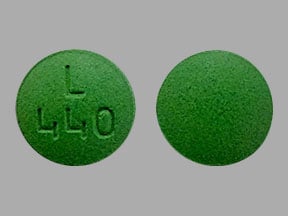
Febuxostat Coupons & Savings Card – Discount Prices from $33.05
Generic for: Uloric
My prescription
Edit
40MG, Febuxostat (90 Tablets)
Select pharmacy

CVS
$33.05
COUPON PRICE
Albertsons
$33.14
COUPON PRICE
Walgreens
$38.07
COUPON PRICE
Walmart
$55.51
COUPON PRICEFebuxostat savings card
Show this card to your pharmacist
CVS
$33.05
BIN
ID
PCN
GRP
019876
LH745BF93B
CHIPPO
LHX
Powered by
More prescriptions for gout
More prescriptions for gout
Price history for Uloric (brand) & Febuxostat (generic)
90 Tablets, 40MG
Average retail price for Uloric
Average retail price for Febuxostat
Average SaveHealth price for Febuxostat
Our price history data is based on aggregated prescription data collected from participating pharmacies in America. Our prescription data updates daily to reflect the latest price changes. If you notice a missing data point, it means there wasn't sufficient data available to generate a monetary value for that date.
We analyzed Febuxostat prices for (40MG, 90 Tablets) over the last 12 months. The average retail price was $41.32, while the average price using the SaveHealth discount card was $39.25. That's a savings of approximately 5.01% when using our Febuxostat coupon.
Compared to the generic version, Uloric had an average price of $1234.52 over the same time period. With the SaveHealth savings card, Febuxostat is 96.82% cheaper on average than Uloric.
*Retail prices are based on pharmacy claims data, and may not be accurate when we don't have enough claims.
Febuxostat dosage forms
Dosage Quantity Price from Per unit 40MG 90 Tablets $33.05 $0.37 40MG 1 Tablet $3.02 $3.02 40MG 30 Tablets $15.69 $0.52 80MG 30 Tablets $17.61 $0.59 80MG 90 Tablets $36.00 $0.40
| Dosage | Quantity | Price from | Per unit |
|---|---|---|---|
| 40MG | 90 Tablets | $33.05 | $0.37 |
| 40MG | 1 Tablet | $3.02 | $3.02 |
| 40MG | 30 Tablets | $15.69 | $0.52 |
| 80MG | 30 Tablets | $17.61 | $0.59 |
| 80MG | 90 Tablets | $36.00 | $0.40 |
